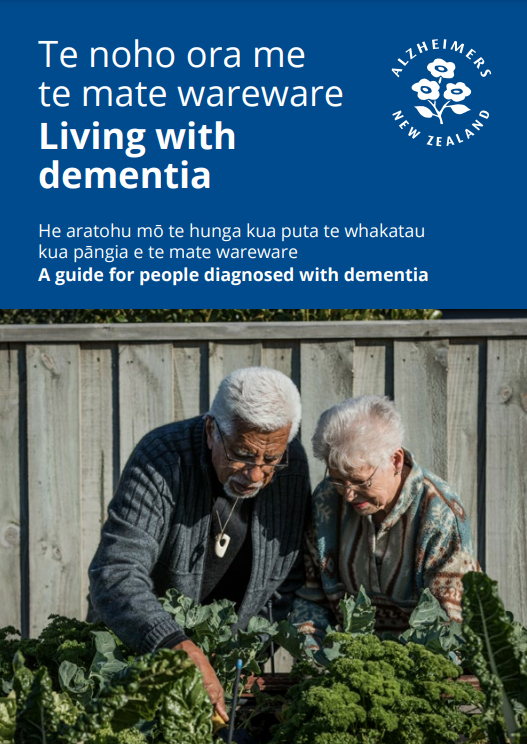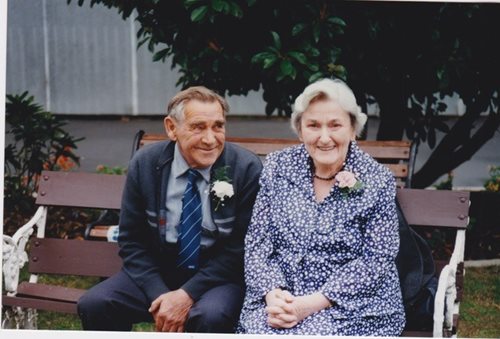Me whai wāhi, me pukukori – Be involved and active
Staying mentally active and socially involved will help you keep up with your usual activities and help with mental wellbeing.

Rather than giving up activities if they are becoming difficult it may be possible to modify the activity.
“One man was having trouble keeping his golf score. He felt embarrassed and thought about stopping playing altogether, but he decided to modify things by asking his partner to keep the score. Sometimes he decided not to keep the score at all. These changes meant he was able to keep on playing the game he loved.”
Breaking an activity down into smaller parts may help. Even if you can’t manage all the steps, you may be able to take part in some of them. For example, rather than stopping cooking altogether, you may be able to peel and chop vegetables, set the table or serve up the meal.
Reduce stress
High levels of stress affects memory and can cause physical problems such as not sleeping well. Work out with your whānau and friends the things you can cope with and focus on one thing at a time. Physical and mental exercise are very good ways of dealing with stress and its negative effects. Concentrating on a mental task can also divert your attention from whatever is stressful to you.
Creative activities
Examples of creative hobbies include: gardening, knitting, embroidery, woodwork, sewing, painting or drawing, playing a musical instrument or simply listening to music – anything creative you enjoy.
Again, if you’re having trouble doing something you enjoy, rather than giving up completely, try to simplify it. For example, if you enjoy knitting, try using less complex patterns. A family member or friend might help with an activity, perhaps by starting you off so you can continue on your own. Or they might keep helping you, and that way you can enjoy the activity together.
Exercise and dementia
“There is still a persistent myth that a diagnosis of dementia is the end of your life. You can and should continue to be an active part of the community, in whatever way works for you.”
Diane’s story
Read Diane's storyExercise is important for health and wellbeing. Keeping active keeps us fit and improves muscle control and coordination. Exercise helps blood flow to the brain and may stimulate brain cell growth and survival. Exercise is good both for your body and your brain.
Before you start any exercise programme do talk to your doctor, particularly if you have any other other illnesses or physical challenges or disabilities. Choose activities you enjoy and build them into your daily routine. Some suggestions include:
- gardening
- swimming
- yoga
- playing with grandchildren
- kapa haka
- walking
- water aerobics
- Tai Chi.
Benefits of exercise
Exercise has many benefits, which means we should all stay as active as possible for as long as possible. Exercise:
- strengthens muscles
- helps with mobility and health problems caused by inactivity
- promotes a good nights sleep
- improves mood and opportunities for social participation
- reduces feelings of stress and depression.
Tips for exercise
- Always warm up before beginning your exercise routine and cool down at the end.
- Start with shorter sessions and work your way up.
- Try water exercise, such as swimming or aqua aerobics, as these are often easier on the joints and take less balance.
- If you’re anxious about making decisions or remembering what to do next, try walking on a treadmill or using an exercycle.
- If you have difficulty maintaining your balance, exercise within reach of a rail or something to grab onto.
If at any time you feel sick or you begin to hurt, STOP the activity and ask your doctor or another health professional for advice.
For more information and advice, see the Ministry of Health website.
Mental exercises
Learning new things and doing a variety of activities are really good for your brain. Both help you feel better. Keeping your brain active helps you enjoy a better quality of life.
Mental exercise can and should be fun. Almost any type of mental activity you do could help, but try to keep it varied, interesting, and do it as much as possible. But remember – you should enjoy it!
Activities that involve exercise for the brain include:
- reading
- listening to the radio
- visiting museums
- taking a course in something you’ve always wanted to learn
- learning a new language
- playing musical instruments
- artistic and other hobbies
- participation in leisure activities, such as sports, hobbies, dancing, gardening, shared interest groups, cultural activities
- conversation
- board games
- crosswords
- sudoku and other puzzles.
Cognitive Simulation Therapy (CST) courses
Cognitive Simulation Therapy courses are delivered in a group format over several weeks. The course sessions are aimed to be an enjoyable social and learning time. Course sessions include discussing life and current events, art, music, and physical games.
There is evidence about the effectiveness of group CST – the sessions have positive impact on mood, improved memory, concentration and quality of life. Find out from your local Alzheimer or Dementia organisation about courses in your region.
Stay connected
The social interaction, participation and communication you get from doing the mental activity can be just as beneficial for you as the
activity itself. Do all you can to stay involved. Just like daily activities, if you’re finding it hard to do what you could once do, try to modify the mental activity or break it down into parts you can do. It could also be an opportunity to try something new – again, that’s great mental stimulation.
-

Booklet: Living with dementia
A guide for people diagnosed with dementia
This booklet is written for people who have been diagnosed with dementia to give you information and to help you continue to live well. The booklet suggests ways to look after yourself including how to adjust to change and managing your day, as well as working, driving, keeping involved and active and planning for the future.



Social activities
If you’re a person who’s always enjoyed being with friends and being social try to keep that up as much as possible.
Social activity might include involvement with your marae, groups such as Rotary and Probus, gardening, exercise and church groups. Visits to your friends, going to card or coffee groups, or spending time with family will be enjoyable and rewarding.
Some people with dementia find being among large groups of people can be overwhelming. Too much noise or activity can cause feelings of anxiety or confusion. If that’s happening to you, it might be better to spend time with just one or two people rather than a large group of people, even if that’s something you liked before your diagnosis.